Wild camping: How to holiday in the untamed countryside
- Published
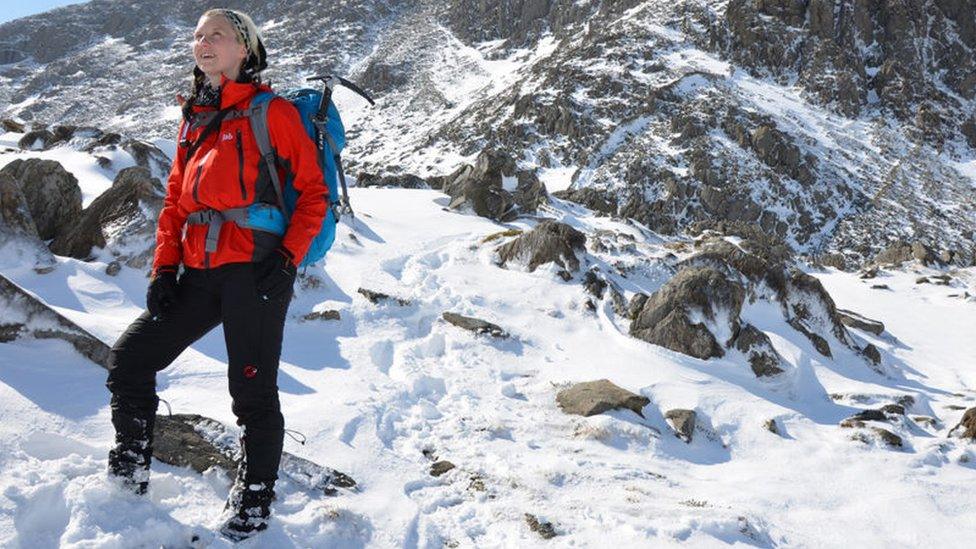
Phoebe in Cairngorms National Park in Scotland: "We are the eyes and ears of the countryside"
Wild camper Phoebe Smith says "everything went wrong" on her first solo trip in Snowdonia's countryside 10 years ago, but she now sleeps in the open whenever she can. But what is wild camping and should you give it a try?
"Friends warned I'd be attacked by a bear, even though I was in Wales," says Phoebe, a 35-year-old magazine editor. "By day two I had run out of water on a blazing hot day, was ludicrously sunburned and covered in bites."
But she noticed a "cataclysmic shift" within her. "OK, things had gone wrong, but I had survived it and my confidence grew massively."
A decade on, she takes trips at least once a month to remote corners of the UK, where there is rarely a phone signal or passers-by to disturb her.
Wild camping, away from designated sites, is technically illegal almost everywhere in England and Wales, unless you have special permission.
Dartmoor, and broad parts of Scotland, are exceptions.
Scotland's Loch Lomond and Trossachs national parks recently introduced new by-laws telling wild campers to stick to designated "permit areas".
But Phoebe, from Windsor in Berkshire, who camps in the South Downs and Lake District as well as Dartmoor and Scotland, says it is "impractical and often impossible" to seek out the landowner before finding a place to sleep.
"I've run into rangers in areas where technically you're not supposed to camp - but they're thrilled to see someone enjoying the outdoors," she says.
She says she has never been asked to move on in her decade of camping in the wilderness.

Before you pitch your tent:
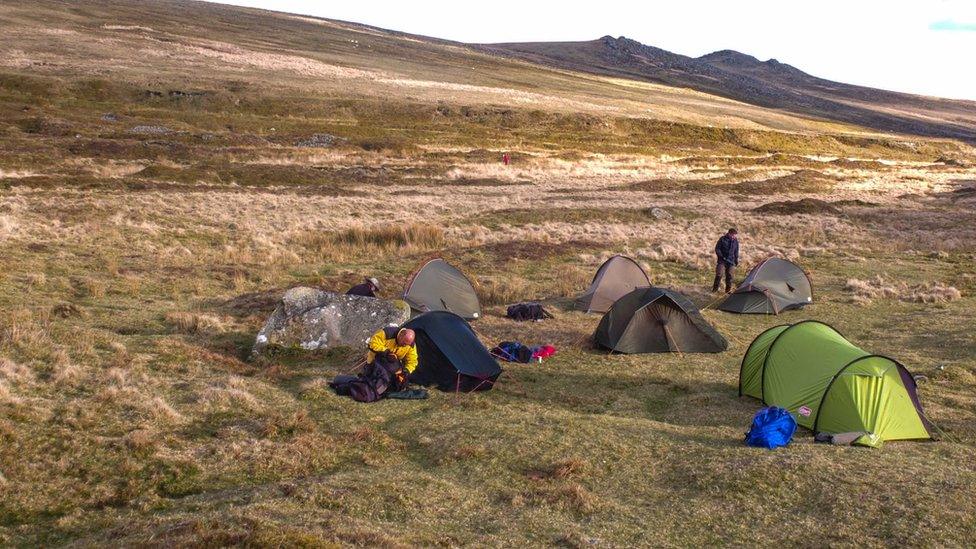
In England and Wales you generally need the permission of the landowner - but wild camping is allowed in open moorland mapped here, external in Dartmoor National Park
Scotland is different, as most unenclosed land is legal to camp on under the Land Reform (Scotland) Act 2003
Land which is classed as "open country" - meaning people can walk, climb and bird-watch there - does not mean you can camp there or light a fire
Do not stay in one place too long - one or two nights is plenty
Leave everything as you found it, including picking up litter and avoiding disturbing wildlife
Check the military firing times if you are staying near a training ground
Let a friend or trusted person know where you will be
Essential kit items include a tent, suitable sleeping bag, rainproof gear, first-aid kit, portable stove, mobile phone and access to clean water
Sources: Adrian Colston and Natural England, external.

Some 4.38 million people go camping in Britain every year, according to Visit Britain, external. But the vast majority pitch their tents at designated sites.
Critics of wild camping say some people leave behind litter, abandon their tents and cause disturbances.
Phoebe says most wild campers are considerate - and act as the "eyes and ears" of the countryside by reporting unruly people and protecting the wild land.
There are "unwritten rules" among wild campers, she says. "Arrive late and leave early, and leave no trace of you being there."
As a general rule, "I don't light a fire, I use a camping stove, because I don't want to damage the ecosystem," she says.
Phoebe adds: "I camp well away from paths so you're not in someone's back garden."
With just herself, a tent and a kit bag, she says sleeping in the untamed countryside is a "freeing experience".
"If I suddenly feel the need I'll go out and do it," she adds. "I can go on Friday after work, and in a few hours I'll be out on the hills, and back for work on Monday morning."
'Practise putting up your tent'
Sleeping alone, exposed to to the elements, without shops or toilet facilities nearby - wild camping has its drawbacks.
Phoebe admits she has had a "couple of close calls". She says: "I crossed a river once and the current was too much, but I pulled myself out of it."
She suggests first-time wild campers pitch their tent at an easy distance from a car park or hostel so that they know they can ask for help.
"It's nerve-wracking", she admits. "But the act of sleeping when everybody else has gone home - when you notice the wildlife and the stars - is one of the best things in life."
Veteran camper Adrian Colston, who was general manager of the National Trust in Dartmoor for 11 years, adds that it's "easy to make mistakes" when outdoors.
"Even with experience you can have bad luck," he says. "You might pitch your tent at a location where rainwater starts collecting."
But he advises campers to keep an eye on the weather and avoid venturing out in heavy rain or storms.
"And practise putting your tent up at home before you go out!" he says.
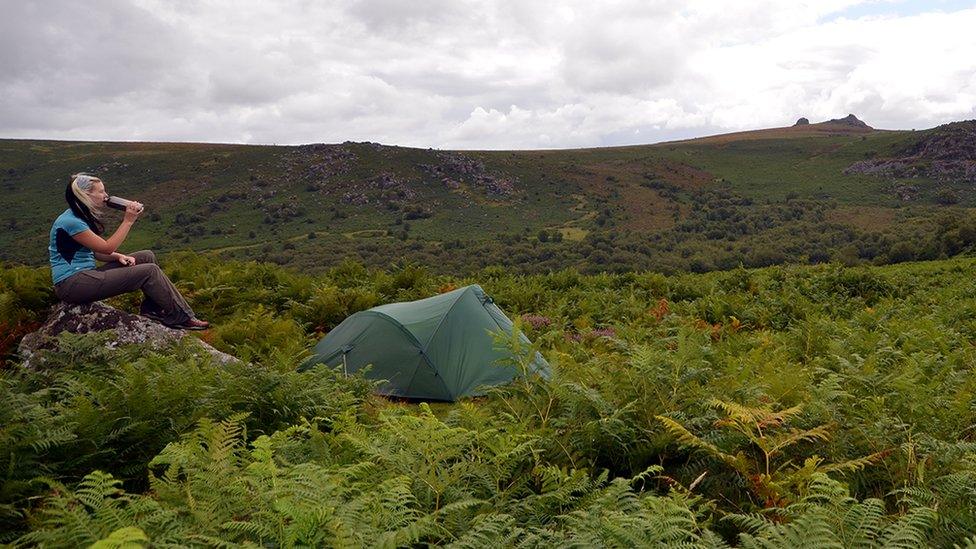
- Published1 March 2017
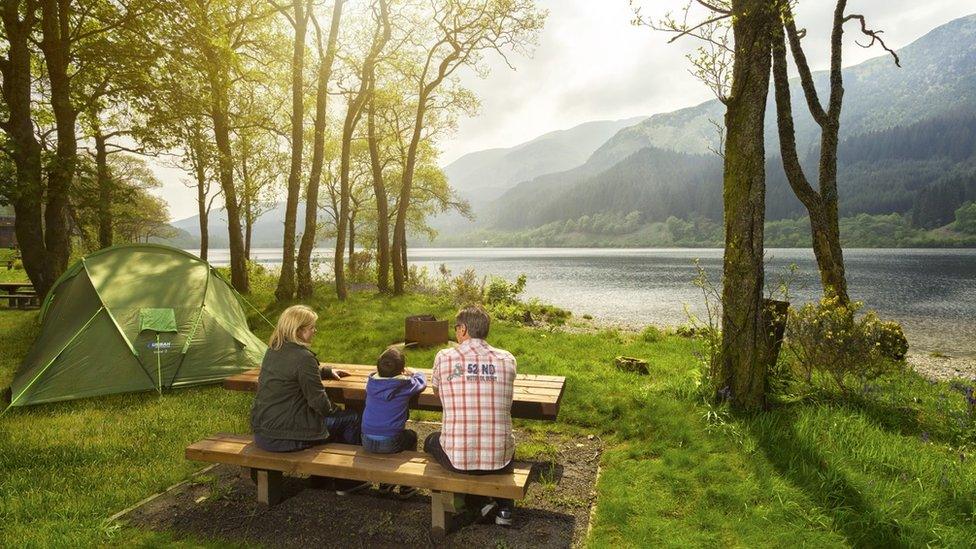
- Published27 April 2015
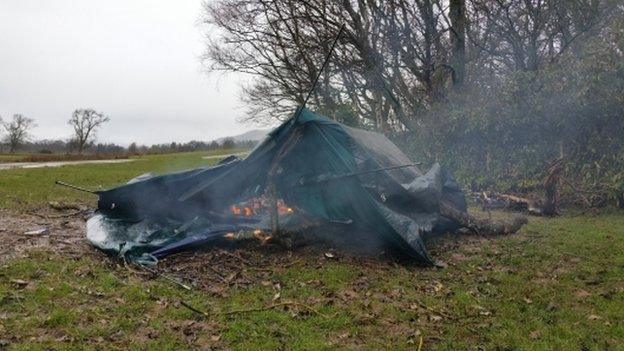
- Published26 January 2016
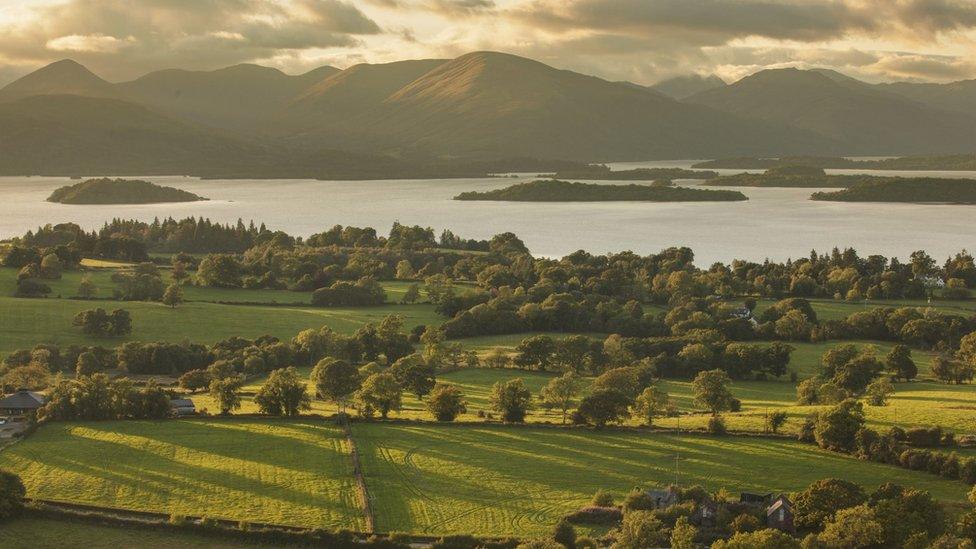
- Published26 October 2016
